GSU Law Starts First Immigration Clinic in Georgia
The asylum grant rate from the Atlanta Immigration Court is one of the lowest in the country, making legal representation for those facing deportation even more critical, said the leader of the new GSU Law clinic.
August 13, 2019 at 02:41 PM
4 minute read
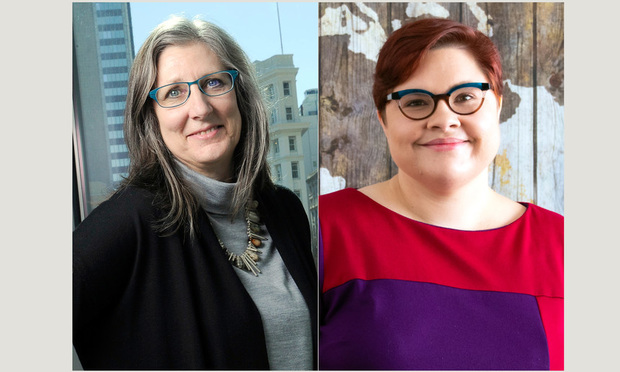 Lisa Bliss (left) and Emily Ngara, GSU College of Law.
Lisa Bliss (left) and Emily Ngara, GSU College of Law.
Georgia State University College of Law is starting the state’s first immigration law clinic, thanks to a $300,000 grant from the Kresge Foundation.
GSU Law has hired Emily Torstveit Ngara to lead the new clinic, which will start taking clients in January.
“There is a huge amount of need for legal representation of immigrants here–especially for removal defense,” said Ngara, previously the director of Hofstra University’s deportation defense clinic.
Georgia has a backlog of 31,700 removal cases—as deportation cases are termed—up from 25,000 in FY 2018, according to the Transactional Records Access Clearinghouse at Syracuse University. Nearly all of them are in Atlanta.
The clinic will focus on deportation defense for immigrants facing ICE removal orders and assist those whose Deferred Action for Childhood Arrivals or temporary protected status has been rescinded.
“A large number of those will likely be asylum cases, given the current situation,” Ngara said.
The asylum grant rate from the Atlanta Immigration Court is one of the lowest in the country, which makes providing legal representation to those facing deportation even more critical, Ngara said.
The Kresge Foundation, based in Troy, Michigan, asked GSU Law to apply for the grant, which is for $300,000 over two years, said Lisa Bliss, the law school’s associate dean of experiential education and clinical programs. Bliss is also co-director of GSU’s Health Law Partnership Legal Services Clinic.
GSU Law students have wanted to have an immigration legal clinic for a long time, Bliss added, and now the Kresge grant has made it possible.
“There is no other immigration clinic in any school in Georgia—and very few in the Southeast,” Bliss said. “Atlanta is an important place to have that kind of clinic.”
She noted that GSU Law is highly ranked for its experiential and clinical programs. “Kresge recognized that GSU Law would be a good home for that,” Bliss said.
Up to 16 law students will be able to work with the immigration law clinic per semester, Ngara said. They will work in pairs with Ngara and another supervising attorney.
Removal defense will be the focus, she said, but those cases can take a long time to be adjudicated, so she hopes also to partner with organizations that perform bond hearings at detention facilities.
“It’s an opportunity for students to get into court. Those cases have much shorter turnaround–and it can make a huge difference to someone in immigration detention,” she said.
Ngara earned a law degree in 2010 from the University of Pennsylvania and holds an LLM in clinical education from the University of the District of Columbia. She has worked in immigration law clinics at both those law schools as well as the University of Baltimore School of Law.
Ngara said she’s meeting with people in Atlanta’s immigrant communities and local nonprofits to learn how best to use the new clinic’s resources.
Atlanta legal nonprofits focused on immigrant representation include the Georgia Asylum and Immigration Network, Kids in Need of Defense, Asian Americans Advancing Justice, the Latin American Association and Catholic Charities.
The clinic will give students the chance to interview clients, perform fact investigations, prepare evidence, draft briefs and motions, appear in court, make legal arguments and work with experts, Ngara said.
This story has been updated to reflect that the Kresge Foundation grant to GSU Law is for $300,000 over two years.
This content has been archived. It is available through our partners, LexisNexis® and Bloomberg Law.
To view this content, please continue to their sites.
Not a Lexis Subscriber?
Subscribe Now
Not a Bloomberg Law Subscriber?
Subscribe Now
NOT FOR REPRINT
© 2025 ALM Global, LLC, All Rights Reserved. Request academic re-use from www.copyright.com. All other uses, submit a request to [email protected]. For more information visit Asset & Logo Licensing.
You Might Like
View All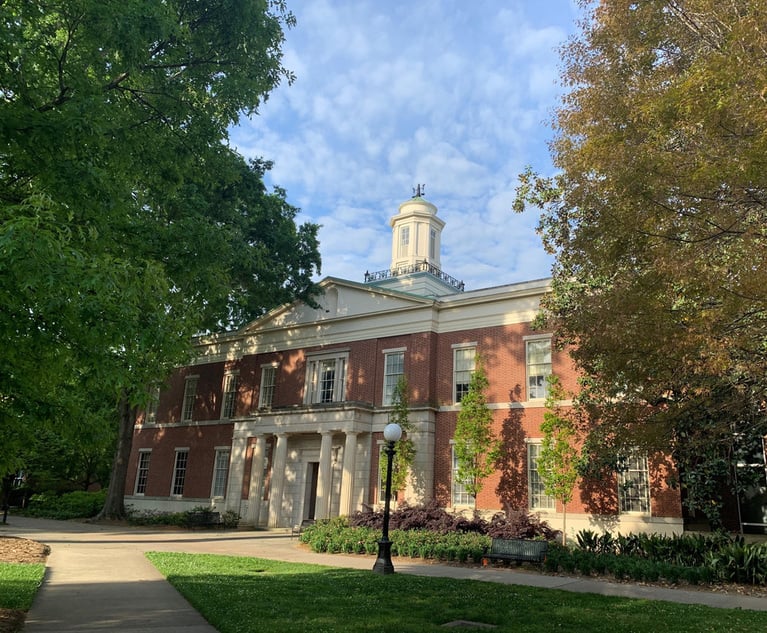
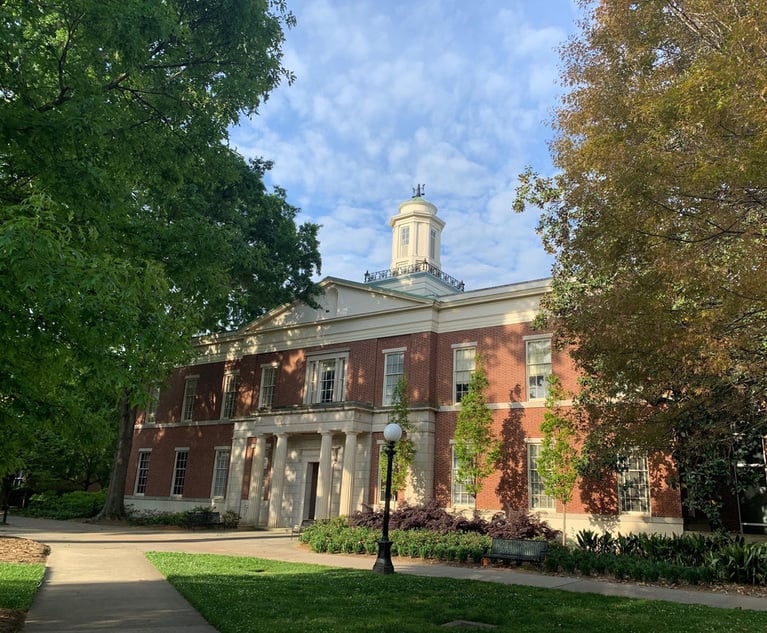
28 Firms Supporting Retired Barnes & Thornburg Litigator in Georgia Supreme Court Malpractice Case
7 minute read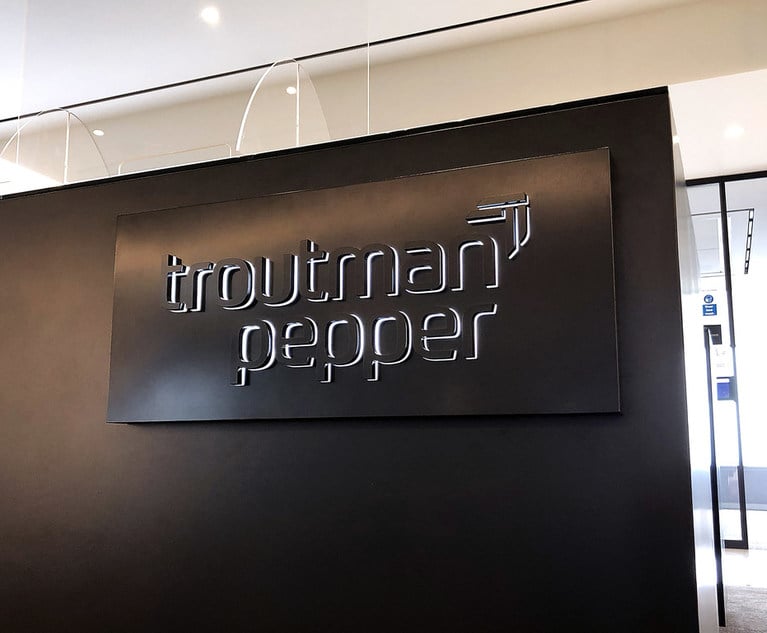
Troutman Pepper Says Ex-Associate Who Alleged Racial Discrimination Lost Job Because of Failure to Improve
6 minute read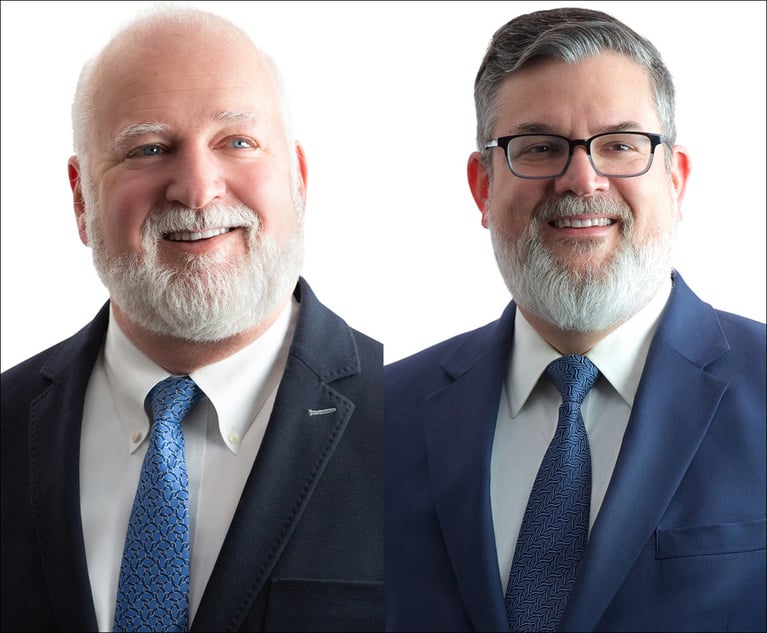
Trending Stories
- 1Thursday Newspaper
- 2Public Notices/Calendars
- 3Judicial Ethics Opinion 24-117
- 4Rejuvenation of a Sharp Employer Non-Compete Tool: Delaware Supreme Court Reinvigorates the Employee Choice Doctrine
- 5Mastering Litigation in New York’s Commercial Division Part V, Leave It to the Experts: Expert Discovery in the New York Commercial Division
Who Got The Work
J. Brugh Lower of Gibbons has entered an appearance for industrial equipment supplier Devco Corporation in a pending trademark infringement lawsuit. The suit, accusing the defendant of selling knock-off Graco products, was filed Dec. 18 in New Jersey District Court by Rivkin Radler on behalf of Graco Inc. and Graco Minnesota. The case, assigned to U.S. District Judge Zahid N. Quraishi, is 3:24-cv-11294, Graco Inc. et al v. Devco Corporation.
Who Got The Work
Rebecca Maller-Stein and Kent A. Yalowitz of Arnold & Porter Kaye Scholer have entered their appearances for Hanaco Venture Capital and its executives, Lior Prosor and David Frankel, in a pending securities lawsuit. The action, filed on Dec. 24 in New York Southern District Court by Zell, Aron & Co. on behalf of Goldeneye Advisors, accuses the defendants of negligently and fraudulently managing the plaintiff's $1 million investment. The case, assigned to U.S. District Judge Vernon S. Broderick, is 1:24-cv-09918, Goldeneye Advisors, LLC v. Hanaco Venture Capital, Ltd. et al.
Who Got The Work
Attorneys from A&O Shearman has stepped in as defense counsel for Toronto-Dominion Bank and other defendants in a pending securities class action. The suit, filed Dec. 11 in New York Southern District Court by Bleichmar Fonti & Auld, accuses the defendants of concealing the bank's 'pervasive' deficiencies in regards to its compliance with the Bank Secrecy Act and the quality of its anti-money laundering controls. The case, assigned to U.S. District Judge Arun Subramanian, is 1:24-cv-09445, Gonzalez v. The Toronto-Dominion Bank et al.
Who Got The Work
Crown Castle International, a Pennsylvania company providing shared communications infrastructure, has turned to Luke D. Wolf of Gordon Rees Scully Mansukhani to fend off a pending breach-of-contract lawsuit. The court action, filed Nov. 25 in Michigan Eastern District Court by Hooper Hathaway PC on behalf of The Town Residences LLC, accuses Crown Castle of failing to transfer approximately $30,000 in utility payments from T-Mobile in breach of a roof-top lease and assignment agreement. The case, assigned to U.S. District Judge Susan K. Declercq, is 2:24-cv-13131, The Town Residences LLC v. T-Mobile US, Inc. et al.
Who Got The Work
Wilfred P. Coronato and Daniel M. Schwartz of McCarter & English have stepped in as defense counsel to Electrolux Home Products Inc. in a pending product liability lawsuit. The court action, filed Nov. 26 in New York Eastern District Court by Poulos Lopiccolo PC and Nagel Rice LLP on behalf of David Stern, alleges that the defendant's refrigerators’ drawers and shelving repeatedly break and fall apart within months after purchase. The case, assigned to U.S. District Judge Joan M. Azrack, is 2:24-cv-08204, Stern v. Electrolux Home Products, Inc.
Featured Firms
Law Offices of Gary Martin Hays & Associates, P.C.
(470) 294-1674
Law Offices of Mark E. Salomone
(857) 444-6468
Smith & Hassler
(713) 739-1250






